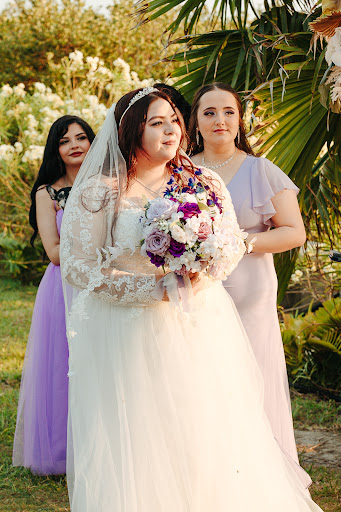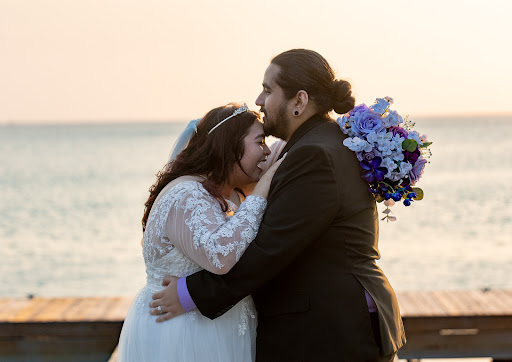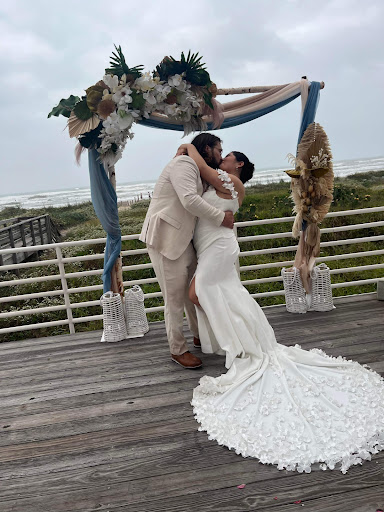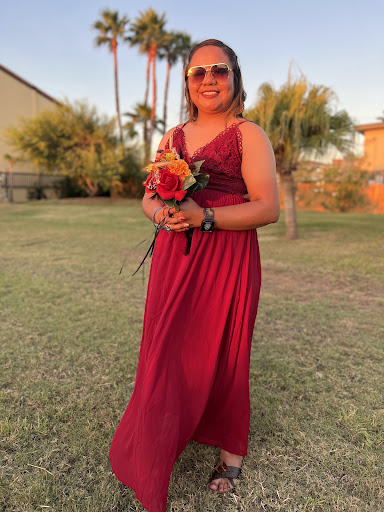Do you need a marriage license to get married?
Overseeing the legal aspects of getting married in Texas requires obtaining a marriage license, a crucial step for couples heading towards the altar. Before exchanging vows in the Lone Star State, it is imperative to understand the process and requirements involved in obtaining this vital document. The marriage license serves as an official authorization for a couple to wed and is a mandatory component in the journey towards marriage in Texas. To ensure a smooth and successful wedding day, couples must be well-versed in the ins and outs of obtaining a marriage license in Texas.
Key Takeaways:
- Marriage License Requirement: In Texas, couples must obtain a marriage license before getting married.
- Issuing Counties: Marriage licenses are issued by county clerks in the county where the marriage will take place.
- Identification and Proof of Eligibility: Both parties must provide valid identification and proof of eligibility to obtain a marriage license.
- Waiting Period: There is a 72-hour waiting period after obtaining the marriage license before the ceremony can take place.
- Validity: The marriage license is valid for 90 days from the date of issuance.
- Fee: There is a fee associated with obtaining a marriage license, which varies by county.
- Online Application: Some counties offer the option to fill out a marriage license application online before visiting the county clerk’s office.
Types of Marriage Licenses in Texas
Some couples in Texas may not be aware that there are different types of marriage licenses available for them to obtain. Understanding the options can help ensure that the process goes smoothly and meets all legal requirements. The following information breaks down the various types of marriage licenses available in Texas:
| Category | Description |
| Formal Marriage License | A formal marriage license is the standard document required for couples to legally marry in Texas. This license must be obtained from the county clerk’s office and is typically valid for a specific period of time before the wedding ceremony. |
| Informal (Common-Law) Marriage Declarations | Informal marriage declarations, also known as common-law marriages, are recognized in Texas under specific circumstances. Couples who meet the criteria for common-law marriage can declare their union without a formal license. |
| Proxy Marriages and Special Situations | Proxy marriages and special situations refer to unique cases where one or both parties may not be physically present for the wedding ceremony. Specific rules and requirements apply in these situations to ensure the marriage is legally recognized. |
Formal Marriage License
One important aspect of getting married in Texas is obtaining a formal marriage license. This document acts as proof of the couple’s intention to marry and is a legal requirement in the state. Couples must apply for the license together at their county clerk’s office and meet certain criteria to be eligible.
Informal (Common-Law) Marriage Declarations
Some couples in Texas choose to enter into common-law marriages, which do not require a formal marriage license. To establish a common-law marriage, both parties must agree to be married, live together as a couple, and present themselves to others as married. While not as common as formal marriages, common-law marriages are legally recognized in Texas under specific conditions.
Marriage licenses are important documents that couples must obtain before getting married in Texas. Each type of license, whether formal or informal, has its own requirements and implications for the couple’s legal status. Understanding the different types of marriage licenses available can help couples navigate the process and ensure a smooth transition into married life.
Proxy Marriages and Special Situations
There’s a provision in Texas for proxy marriages and special situations that allow couples to get married even when one or both parties cannot physically attend the ceremony. Proxy marriages involve a stand-in for one of the parties, while special situations may include military deployments or other unique circumstances. Special rules and procedures apply in these cases to ensure the marriage is valid and legally binding.
Preparing for the License Application
Once again, congratulations on your decision to get married. Before you can officially tie the knot in Texas, you’ll need to obtain a marriage license. To start the process, make sure you have all the necessary documentation ready and identify the correct County Clerk’s Office to submit your application.
Documentation Required
The key to a successful marriage license application is having the correct documentation in place. Valid photo identification, social security numbers, and proof of age are necessary requirements. Additionally, if either party has been previously married, be prepared to provide proof of divorce or death of the former spouse.
Identifying the Right County Clerk’s Office
Right at the heart of your marriage license application journey is identifying the correct County Clerk’s Office where you should submit your application. Each county in Texas has its own office responsible for issuing marriage licenses. To save time and ensure you’re at the right place, do some research beforehand or give them a call to confirm their location and operating hours.
List of Popular Texas Wedding Counties
- Travis County (Austin)
- Contact: Travis County Clerk’s Office
- Phone: (512) 854-9188
- Website: https://countyclerk.traviscountytx.gov
- Bexar County (San Antonio)
- Contact: Bexar County Clerk’s Office
- Phone: (210) 335-2216
- Website: https://www.bexar.org/693/County-Clerk
- Harris County (Houston)
- Contact: Harris County Clerk’s Office
- Phone: (713) 274-8600
- Website: https://www.cclerk.hctx.net
- Dallas County (Dallas)
- Contact: Dallas County Clerk’s Office
- Phone: (214) 653-7099
- Website: https://www.dallascounty.org/government/county-clerk/marriage-license.php
- Tarrant County (Fort Worth)
- Contact: Tarrant County Clerk’s Office
- Phone: (817) 884-1195
- Website: https://www.tarrantcounty.com/en/county-clerk/vital-records/marriage-licenses.html
- Denton County (Denton)
- Contact: Denton County Clerk’s Office
- Phone: (940) 349-2010
- Website: https://dentoncounty.gov/Departments/County-Clerk/Marriage-License.aspx
- Galveston County (Galveston)
- Contact: Galveston County Clerk’s Office
- Phone: (409) 766-2200
- Website: https://www.galvestoncountytx.gov/our-county/county-clerk/marriage-licenses
- Hays County (San Marcos)
- Contact: Hays County Clerk’s Office
- Phone: (512) 393-7330
- Website: https://hayscountytx.com/departments/county-clerk
- Williamson County (Georgetown)
- Contact: Williamson County Clerk’s Office
- Phone: (512) 943-1515
- Website: https://www.wilco.org/County-Clerk
- El Paso County (El Paso)
- Contact: El Paso County Clerk’s Office
- Phone: (915) 546-2071
- Website: https://epcounty.com/clerk/marriage.htm
The Step-by-Step Application Process
Many couples commenceing on the journey of marriage in Texas must first obtain a marriage license. The process involves several steps that need to be followed diligently to ensure a smooth application experience. Below is a breakdown of the application process for obtaining a marriage license in Texas:
| Step | Description |
| 1 | Fill out the marriage license application form, provided by the county clerk’s office. |
| 2 | Submit the application along with the required documentation, such as valid IDs and proof of age. |
| 3 | Pay the marriage license fee, which varies by county, but typically ranges between $60 to $85. |
Completing the Application
Application for a marriage license in Texas includes providing personal information about both individuals, including their full names, dates of birth, social security numbers, and current addresses. It is crucial to double-check the accuracy of all the details before submitting the application form.
In-Person Requirements and Scheduling
For a marriage license application in Texas, both individuals must appear in person at the county clerk’s office to complete the process. Appointments may be required in some counties, so it is advisable to check with the office beforehand. The couples must also provide any necessary documents, such as proof of age and identification, to verify their eligibility for marriage.
Tips for a Smooth Application Experience
Not sure where to start with your Texas marriage license application? Follow these helpful tips for a seamless process:
Pre-application Dos and Don’ts
An important step before applying for a marriage license is to ensure you have all necessary documents and information ready. Important details such as both parties’ government-issued IDs and social security numbers are required for the application. Avoid any delays by double-checking these details before heading to the county clerk’s office. Perceiving potential mistakes beforehand can save you time and frustration during the application process.
Managing Timelines and Waiting Periods
Tips for efficiently dealing with timelines and waiting periods include planning ahead for the required 72-hour waiting period before the license becomes valid. Plus, consider factors such as peak marriage seasons in Texas, which can lead to longer processing times at county clerk’s offices. Understanding these timelines can help you navigate the application process smoothly and avoid last-minute stress.
Factors to Consider When Applying
Unlike some states, obtaining a marriage license in Texas involves considering specific factors. These factors can include residency requirements, age restrictions, and parental consent. It’s important to be aware of these considerations before starting the application process.
Residency and Citizenship Implications
You must be a resident of the county you are applying for the marriage license in. If one or both parties are not residents of Texas, the marriage license may still be obtained as long as the marriage takes place in the state. Proof of identification and citizenship may be required during the application process. Ensure you have all necessary documentation to avoid any delays or complications. Though, the requirements may vary from county to county.
Age Restrictions and Parental Consent
Even though the legal age to marry in Texas is 18, individuals as young as 16 can marry with parental consent. Parental consent must be given in person at the time of application and also a court order. If one party is under 16 years old, a court order is necessary. It is crucial to verify the specific requirements with the county clerk’s office before applying for a marriage license.
The Pros and Cons of Different Marriage License Options
Keep in mind that there are various options available when it comes to obtaining a marriage license in Texas, each with its own set of pros and cons. It is important to carefully weigh these factors before making a decision. Below is a breakdown of the advantages and disadvantages of different options:
| Options | Pros and Cons |
| Formal Marriage License | Pros: Legal recognition, clear regulations. Cons: Formalities, potential costs. |
| Informal Marriage License | Pros: Less paperwork, flexibility. Cons: Limited legal protection, recognition. |
Assessing Formal vs. Informal Marriage Licenses
An important consideration when deciding between a formal and informal marriage license is the level of legal protection and recognition you desire. Formal licenses offer clear legal status and obligations, but they may involve more paperwork and costs. On the other hand, informal licenses provide flexibility but may not be recognized in all situations, leading to potential challenges in the future.
Considering Special Types of Marriage Procedures
Assuming you are exploring special types of marriage procedures, such as proxy marriage or covenant marriage, it is crucial to understand the unique requirements and implications associated with each option. For example, a covenant marriage may require premarital counseling but can also offer a deeper level of commitment. Proxy marriages, while legally recognized in Texas, have their own set of limitations and procedures that need to be carefully considered.
| Special Types of Marriage Procedures | Important Details |
| Covenant Marriage | Pros: Deeper commitment, counseling. Cons: Limited flexibility, counseling requirement. |
| Proxy Marriage | Pros: Legal recognition, remote participation. Cons: Limited availability, legal complexities. |
Marriage license options in Texas offer varying degrees of legal protection, recognition, and requirements. It is important to carefully consider the pros and cons of each option to make an informed decision that suits your individual needs and preferences. After all, obtaining a marriage license is a significant step towards the union of two individuals and should not be taken lightly.
Finalizing Your Marriage Legalities
After the Wedding: Submitting Your License
After exchanging vows in the Lone Star State, it is crucial to ensure all legal requirements are met to make your marriage official. Little time should be wasted in submitting your marriage license to the appropriate county office. In Texas, each county has specific procedures for submitting the marriage license, so it is vital to research and understand the guidelines in your county to prevent any delays or complications in the process.
The Role of Marriage Certificates and Records
To maintain the legality of your union, marriage certificates and records play a vital role. These documents serve as proof of your marriage and are necessary for various legal purposes, including name changes, insurance benefits, and property ownership transfers. Ensuring the accuracy and safekeeping of your marriage certificate is vital to protect your rights as a married couple. It is advisable to obtain multiple copies of your marriage certificate for future needs.
Conclusion
From above, it is evident that obtaining a marriage license is a crucial step in the process of getting married in Texas. Without a valid marriage license, the marriage cannot be legally recognized. It is important for couples to familiarize themselves with the requirements and procedures for obtaining a marriage license in the county in which they intend to marry. Each county may have specific guidelines and documentation needed, so it is imperative to plan ahead and ensure all necessary documents are in order before applying for a marriage license.
By following the guidelines provided by the respective county offices, couples can successfully obtain their marriage license and proceed with their wedding plans. It is recommended to start this process well in advance of the wedding date to avoid any last-minute complications. Remember that a marriage license is just one of the legal steps towards a happy and successful marriage in Texas.
Obtaining A Texas Marriage License FAQ
Q: What is a Texas marriage license?
A: A Texas marriage license is a legal document that authorizes couples to get married in the state of Texas.
Q: Who is eligible to apply for a Texas marriage license?
A: Any unmarried person who is 18 years or older can apply for a Texas marriage license. Minors aged 16 or 17 can also apply with parental consent.
Q: Where can I apply for a Texas marriage license?
A: You can apply for a Texas marriage license at any county clerk’s office in Texas.
Q: What documents do I need to bring to apply for a Texas marriage license?
A: You will need to bring valid photo identification, your social security number, and proof of divorce or death of a previous spouse if applicable.
Q: How much does a Texas marriage license cost?
A: The cost of a Texas marriage license varies by county but is typically between $60 and $82.
Q: How long is a Texas marriage license valid for?
A: A Texas marriage license is valid for 90 days from the date it is issued.
Q: Can I use a Texas marriage license to get married outside of Texas?
A: No, a Texas marriage license is only valid for marriages within the state of Texas. If you plan to get married outside of Texas, you will need to obtain a marriage license in that state.
Say ‘I Do’ in Style – Even at the Courthouse! 💍
Ready to capture your intimate courthouse moment with professional elegance?
Your love story deserves to be beautifully documented, no matter where you exchange vows. Our courthouse wedding photography packages start at just $500 and ensure every precious moment – from nervous smiles to that first kiss as newlyweds – is captured with the same professional quality as our full wedding services. Book Your Courthouse Photography Session Today!








































